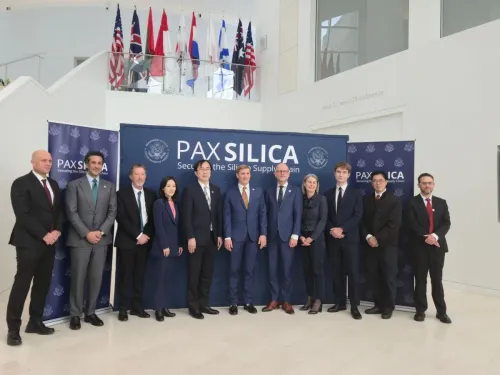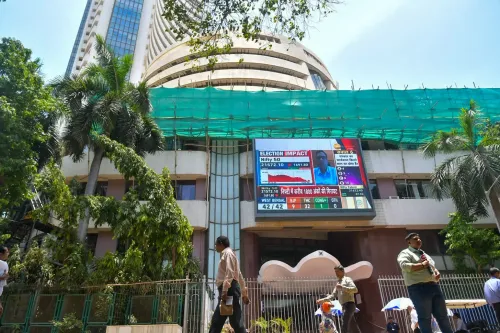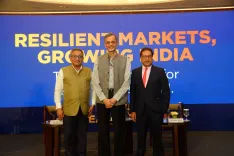Have Over 34 Crore Jobs Been Created in MSMEs?

Synopsis
Key Takeaways
- Over 34 crore jobs created in MSMEs since 2014.
- Government's focus on strengthening the MSME sector.
- New loan support schemes and financial assistance programs.
- Revised definitions of MSMEs to promote growth.
- Significant improvements in access to formal credit.
New Delhi, July 21 (NationPress) Since 2014, more than 34 crore individuals have found employment in micro, small and medium enterprises (MSMEs) via the Udyam and Udyam Assist portals, as stated by Union Minister Jitan Ram Manjhi in the Rajya Sabha on Monday.
The Minister of MSMEs responded to an MP’s inquiry on the floor of the House, indicating that there is no lack of funds and that workers from small enterprises, such as cobblers, have received financial support through various initiatives, including the PM’s Vishwakarma scheme.
The government views the MSME sector as the backbone of India’s manufacturing and industrial advancement, with a focus on reinforcing this sector to foster inclusive growth.
A major decision was made to update the definition of MSMEs after 14 years, removing concerns among MSMEs about losing government benefits as they expand.
The number of MSMEs in India has surged to over 6 crore, creating millions of job opportunities. The definition of MSMEs has been broadened to facilitate easier access to loans.
Recently, PM Modi noted that a decade ago, MSMEs secured loans totaling approximately Rs 12 lakh crore, which has now escalated to around Rs 30 lakh crore.
Additionally, the Prime Minister announced in the budget that the guarantee cover for MSME loans has been doubled to Rs 20 crore. Customized credit cards with a limit of Rs 5 lakh will also be introduced to cater to working capital needs.
Meanwhile, NITI Aayog has published a comprehensive report aimed at unlocking the significant potential of India’s MSMEs through systematic reforms in financing, skill development, innovation, and market access.
The report emphasizes that India's MSMEs can become a pivotal driver of sustainable economic growth by focusing on targeted interventions, fostering robust institutional collaborations, and enhancing global competitiveness.
One significant finding from the report indicates a marked improvement in MSMEs' access to formal credit. From 2020 to 2024, the percentage of micro and small enterprises obtaining credit through scheduled banks rose from 14 percent to 20 percent, while medium enterprises increased from 4 percent to 9 percent.










